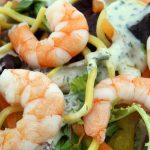Zen of Sugar Addiction: Can Athletics Help? by Joan Kent, PhD
Among the many things my athletic coach used to say, he’d tell us that the purpose of training is to bring consciousness to the process.
When athletes mentioned pain in training, the coach would say that pain stimulates resistance. But through continued training and added consciousness, our response to pain changes. We become nonresponsive to it.
It doesn’t feel any better, he’d say. It just doesn’t bother us as much.
How Does That Apply to Sugar Addiction?
Once you remove an addictive substance, like sugar, from your diet, the body starts displaying different signals. Hunger pangs may return – or show up for the first time – reflecting the body’s needs. Control over food may improve. Appetite may decrease. Your awareness may grow, and unconscious reactions decrease.
Over time, we become less and less reactive to sugar triggers.
Triggers might include the sight of appetizing foods, the delicious smell of baking cookies, or even sounds, such as someone unwrapping candy. Once we’ve been “off” sugar for a while, these external triggers can become less automatic in triggering the desire to eat the sugary food.
It’s not that the foods lose their appeal. It’s just that the triggers don’t bother us as much.
These changes may take time, but staying off sugar could be considered long-term training.
What Athletics and Sugar Have in Common
Athletic performance brings forward conflict, discomfort, anxiety, self-defeating thoughts, doubts about what’s possible and what’s not.
In athletics, you have the above thoughts without reacting to them. You do what’s necessary and stay with the event. The objective is to learn to be nonreactive to distractions, including pain.
Quitting sugar can also bring forward discomforts – withdrawal symptoms, cravings, anxiety, doubts, and self-defeating thoughts that may go with them. None of these is permanent.
You do what’s necessary to eliminate them and stay with your plan.
An Important Difference
In athletics, my coach said, it helps not to derive an identity from your performance. That identity is just ego.
In quitting sugar, I would say, what’s good about the process is the shift in identity you develop. You become The Person Who Doesn’t Eat Sugar, and things change.
- You stop finding sugary foods tempting. You know they’re Not Food.
- You – consciously, deliberately – stop putting junk into your healthy body.
- People stop pushing you to eat what you’d rather avoid.
- People stop “gifting” you with sugary treats.
Again, it’s not that the foods don’t look appetizing or smell delicious. They just don’t bother us; we see them as something we don’t eat.
They’re no longer who we are. That new identity can be life changing.
Brain Chemistry Puts a Space Around Sugar
Eckhart Tolle, who wrote The Power of Now and other spiritual books, talks about putting a space around negative thoughts, memories, and pain by continuing to stay present in the moment.
Essentially, that’s becoming nonreactive.
Once sugar has been removed from your diet, the healthful foods you’ve added along the way can – and will – improve your focus. It’s brain chemistry. Dopamine, as one example, enhances focus.
Meanwhile, a different brain chemical – serotonin – will put a space around what’s happening. It makes you less reactive by literally increasing the time between thought and action.
The nonreactivity holds true whether the trigger is external (seeing chocolate cake, smelling freshly baked cinnamon buns) or internal – having a small taste that provokes the desire for lots more.
I coach my clients about eating to stay stable. Stability applies to both brain chemistry and blood glucose.
When brain chem and glucose are stable and even, you make decisions about food, instead of reacting to every treat you see.
You make decisions, instead of succumbing to the urge to eat what won’t do you any good, just because you can’t resist … or think you have “decision-making fatigue.”
Once my clients are stable, I know they’re on a Zen Path to clear decisions about food and sugar.
That’s the path I wish for you. If you’d like my help in getting there, I would love to help you. Just visit LastResortNutrition and grab your free Help Me Get Free consult. Discover how easy it is to make a few tweaks that bring huge results. You got this!
Brought to you by Dr. Joan Kent, best-selling author of Stronger Than Sugar.



